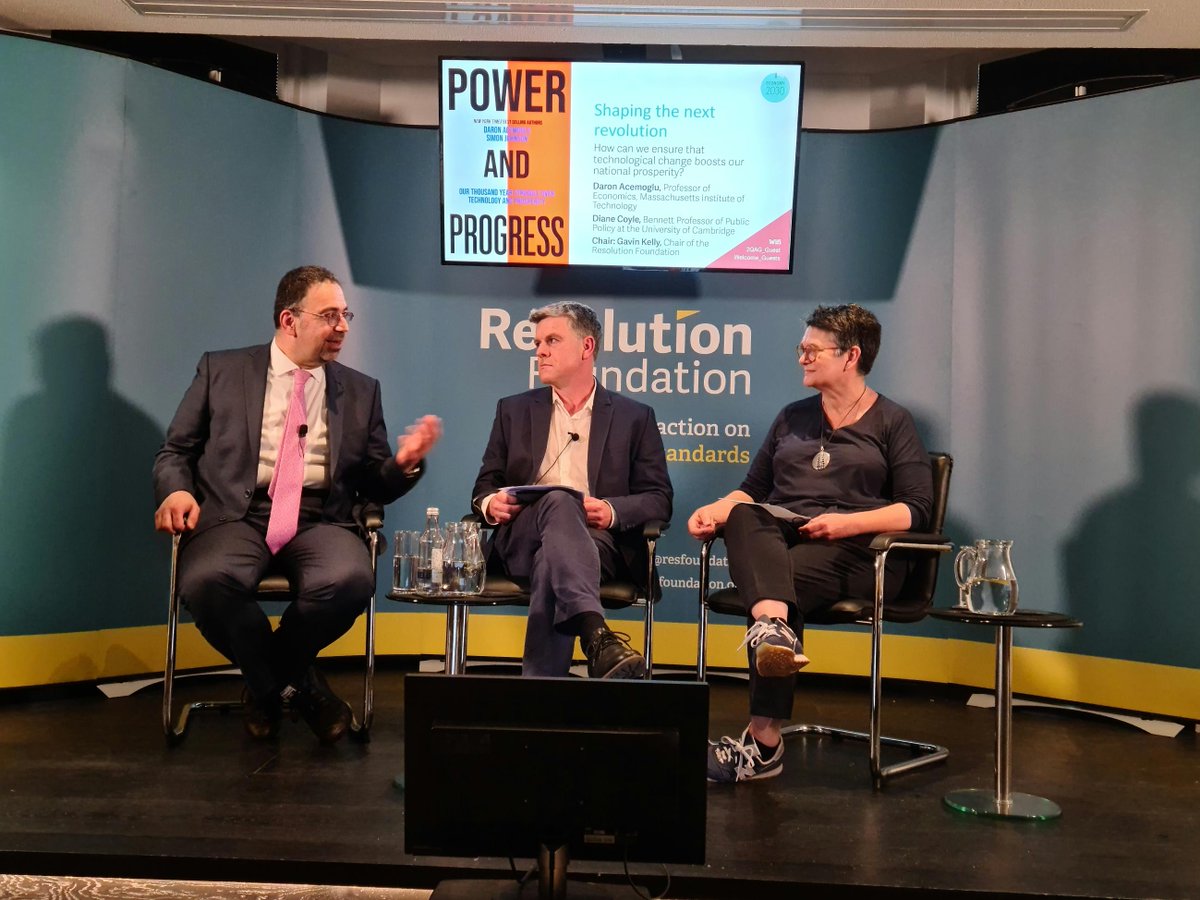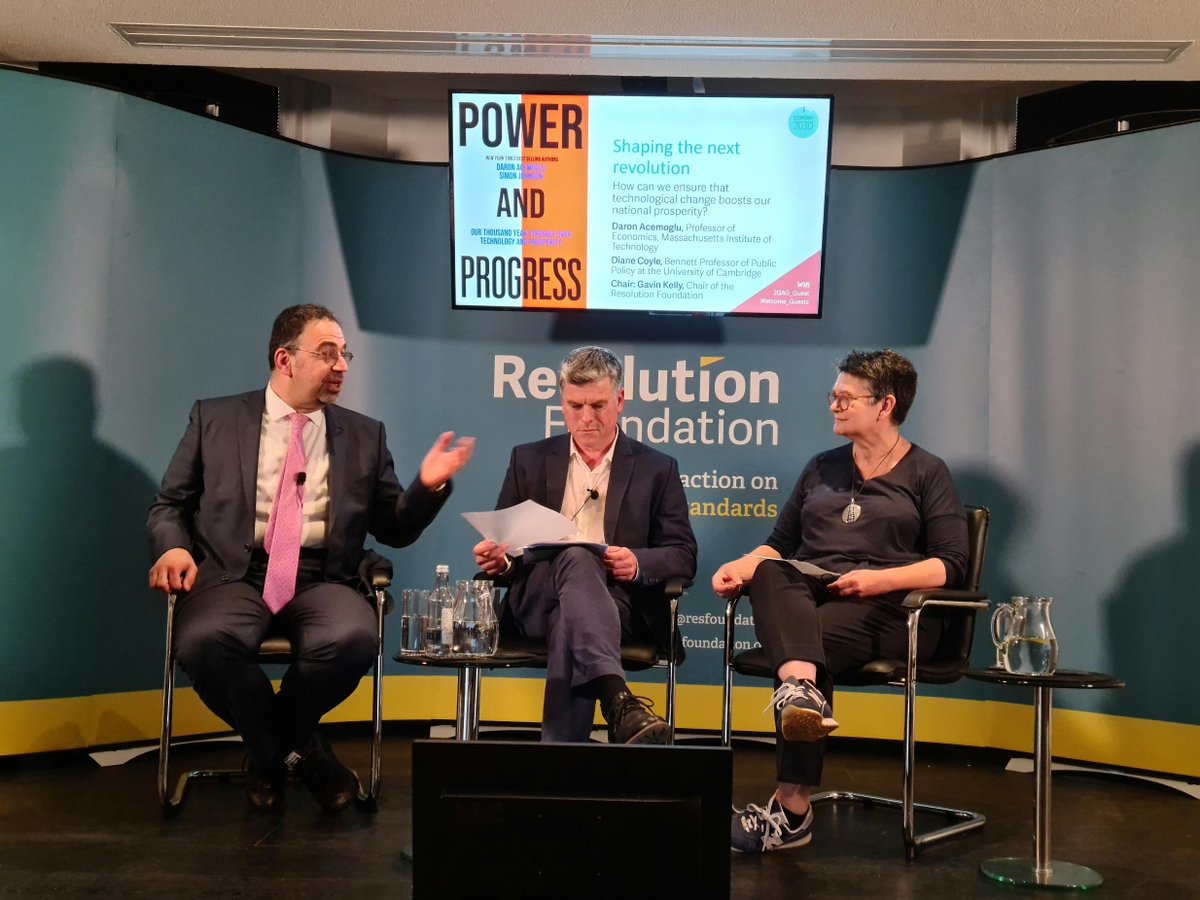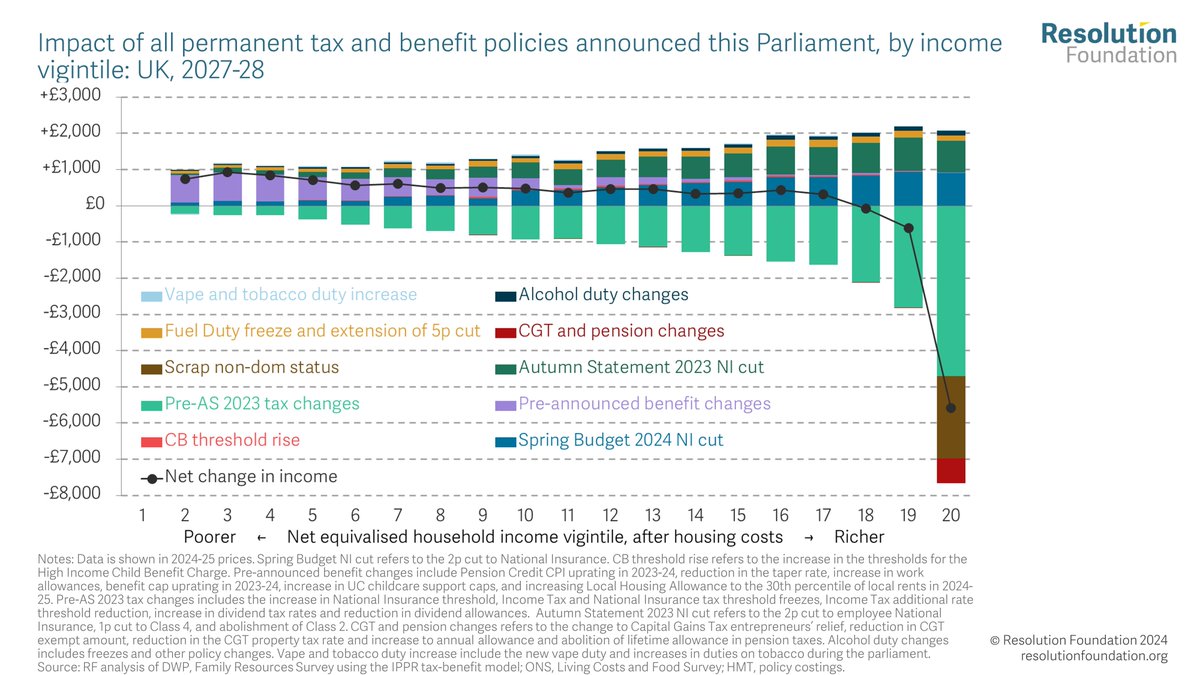Speaking at our event @DAcemogluMIT says history tells us that there is nothing automatic about technological progress leading to rising shared prosperity. Other forces are need to shape the change we want to see. resolutionfoundation.org/events/shaping… 

@DAcemogluMIT We (@DrDaronAcemoglu & @baselinescene ) don't have the answers to how we can shape the AI revolution (and don't believe anyone who says they do). But we do know that workers need a voice in shaping the revolution if its to deliver shared prosperity.... 

@DAcemogluMIT @DrDaronAcemoglu @baselinescene Speaking at our #PowerAndProgress event @DianeCoyle1859 says that are too many examples of where innovation is not serving society well - from food supply to pharmaceuticals. We're our 21st century equivalent of the refrigerator, she asks... 

@DAcemogluMIT @DrDaronAcemoglu @baselinescene @DianeCoyle1859 On breaking up big tech, @DianeCoyle1859 says that she was proud of the @CMAgovUK for ruling against Microsoft's attempted acquisition of Activision Blizzard. Our regulators need teeth, and the courage to take on powerful firms if it's in the public interest. 

@DAcemogluMIT @DrDaronAcemoglu @baselinescene @DianeCoyle1859 @CMAgovUK Time for our first Slido poll.
What’s the best way to ensure that the AI revolution brings benefits to workers, and not just firms?
1 Tough regulation of big tech
2 Directly subsidising worker-friendly technologies
3 Stronger worker power
4 None: policy efforts will backfire
What’s the best way to ensure that the AI revolution brings benefits to workers, and not just firms?
1 Tough regulation of big tech
2 Directly subsidising worker-friendly technologies
3 Stronger worker power
4 None: policy efforts will backfire

@DAcemogluMIT @DrDaronAcemoglu @baselinescene @DianeCoyle1859 @CMAgovUK You can vote or watch our #PowerAndProgres event with @DAcemogluMIT live here resolutionfoundation.org/events/shaping…
• • •
Missing some Tweet in this thread? You can try to
force a refresh














